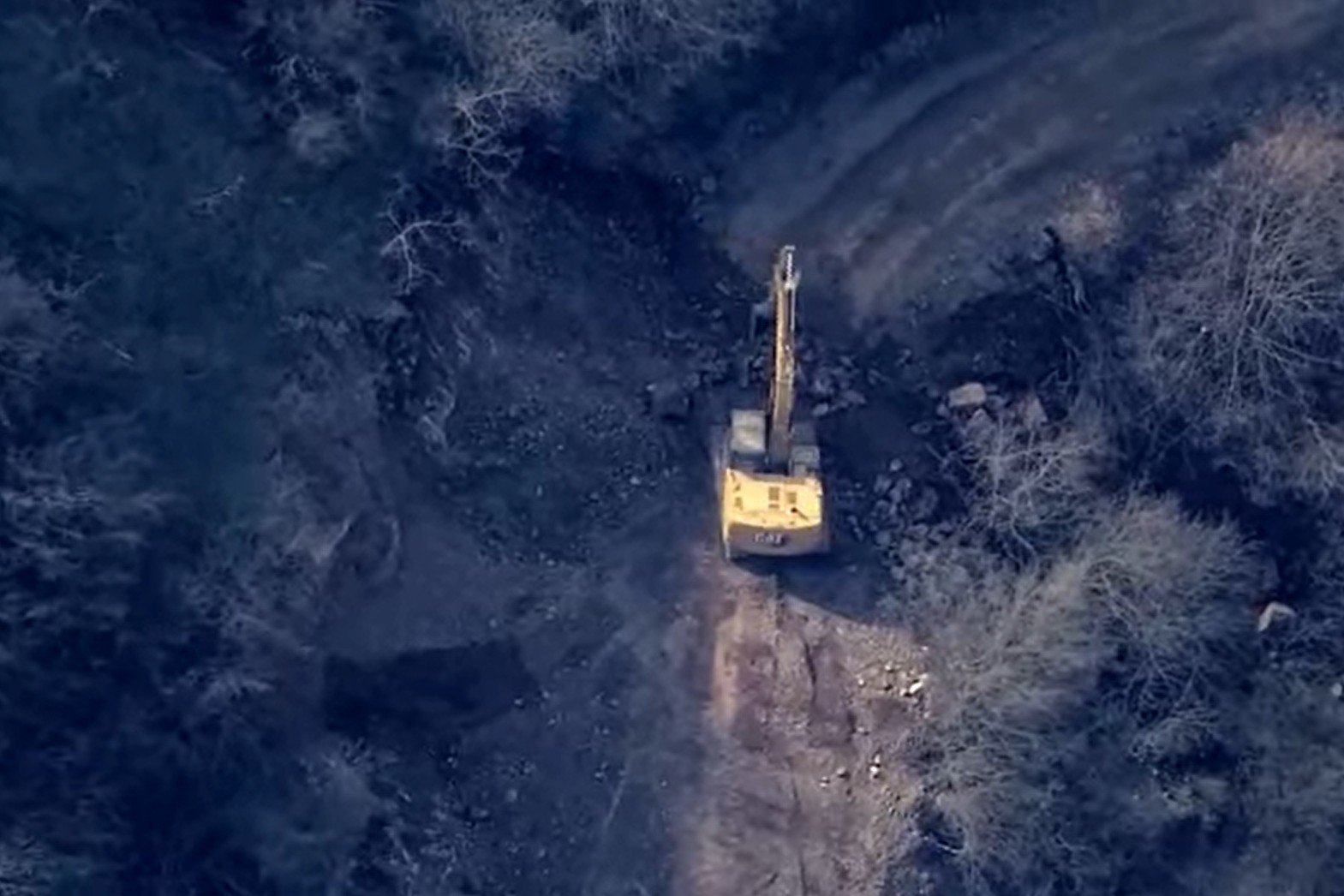
Azerbaijani forces have crossed the line of contact in Nagorno-Karabakh, purportedly in response to the construction of a new road.
On Saturday evening, the Azerbaijani Defence Ministry announced they were taking ‘urgent measures’ to prevent the alleged construction of a road to bypass the Lachin corridor.
The corridor, the only connection between Nagorno-Karabakh and Armenia, has been under blockade near Shusha (Shushi) since December.
There were no reports of clashes or casualties.
The Russian Defence Ministry said Azerbaijani troops had ‘breached’ the line of contact in violation of the 9 November ceasefire agreement, which brought an end to the Second Nagorno-Karabakh War. They said Azerbaijani forces had taken up new positions near Shusha.
Russia urged Azerbaijan to comply with the agreement, which placed areas of the former Nagorno-Karabakh Autonomous Oblast that Azerbaijan had not taken control of at the time of the ceasefire under the control of a Russian peacekeeping force.
Stepanakert announced on Saturday evening that Russian peacekeepers had taken up positions on the height taken by Azerbaijani troops and were negotiating their withdrawal.
In a statement later in the evening, the Foreign Ministry of Nagorno-Karabakh called on the peacekeeping mission and the international community to act.
‘The authorities expect the peacekeeping contingent to take practical steps to eliminate the consequences of this violation and prevent new violations’, the statement read.
They also said Azerbaijan’s actions were a ‘cynical response’ to a ruling by the International Court of Justice ordering Azerbaijan to unblock the Lachin Corridor.
On Friday, the Azerbaijani Defence Ministry published footage of what they said was the construction of a new alternative road to the Lachin Corridor, warning at the time that they would take ‘preventive’ measures.
Baku has previously accused Yerevan, Stepanakert, and the Russian peacekeepers of using an alternative unpaved road to transfer arms and Armenian troops to the region. Both Yerevan and Stepanakert have denied the accusations.
According to Stepanakert, the road in question was used to connect four villages cut off from the rest of Nagorno-Karabakh by the closure of the Lachin Corridor.
The 2020 ceasefire agreement stipulated that a new section of the Lachin Corridor be constructed to bypass the entrance to Shusha, though a final agreed route has not been made public.
There have been unconfirmed media reports that an alternative route was being used to bring in supplies from Armenia, though no evidence of arms transfers has emerged.
Growing discontent
Following the Second Nagorno-Karabakh War, Azerbaijani troops have appeared to breach the line of contact with Nagorno-Karabakh several times.
In December 2020, in the immediate aftermath of the ceasefire, two villages in the Hadrut region of Nagorno-Karabakh, stipulated to be under the control of the Russian peacekeeping force, were captured by Azerbaijani troops, who took dozens of soldiers captive.
Russian peacekeepers remained silent at the time.
In March 2022, Azerbaijani troops advanced in the direction of the village of Parukh (Farukh), forcing villagers to evacuate and positioning themselves in the mountains surrounding the village.
Despite the peacekeeping mission deploying troops and armoured vehicles to the area, residents have not been allowed to return due to security concerns.
[Read more: Russia deploys more peacekeepers to halt ‘Azerbaijani advance’ in Nagorno-Karabakh]
These and other incidents in Nagorno-Karabakh have led officials in Yerevan and Stepanakert to question the effectiveness of the Russian peacekeeping contingent. There have also been growing calls for an international peacekeeping mission or UN mandate for the Russian mission.
[Read more: Nagorno-Karabakh seeks UN peacekeeping mandate]
For ease of reading, we choose not to use qualifiers such as ‘de facto’, ‘unrecognised’, or ‘partially recognised’ when discussing institutions or political positions within Abkhazia, Nagorno-Karabakh, and South Ossetia. This does not imply a position on their status.








